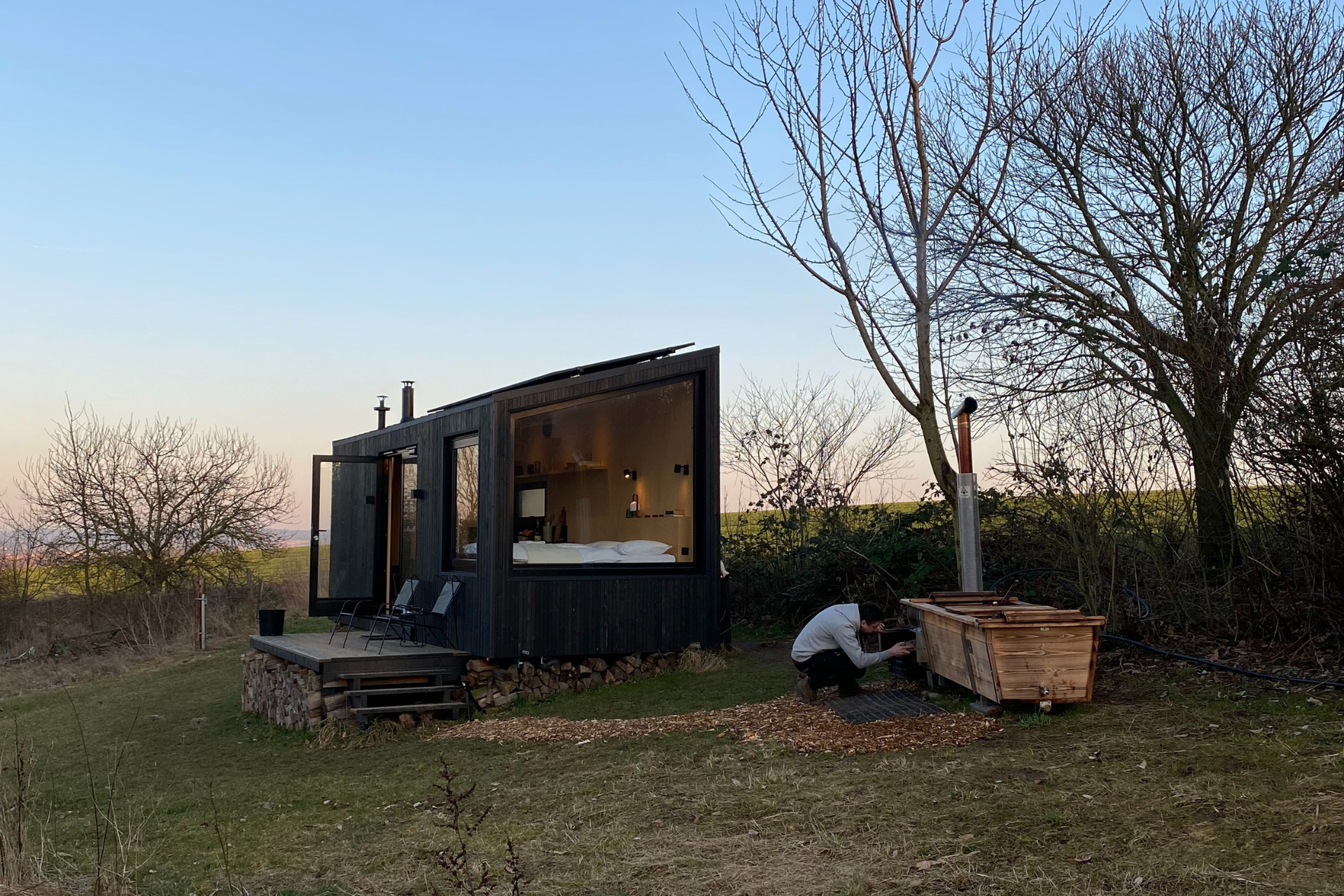Mindfulness
A moment of silence
Our world is rarely quiet. And if we're completely honest, we often prefer all the sounds to silence. After all, they give us the feeling of being part of something - or they distract us. Silence, on the other hand, sometimes even makes us feel uncomfortable, as it often seems like a void that needs to be filled. But what happens when we engage with it? And above all, how does that work? We spoke with Mindfulness Coach Nina Brockmann about this topic.

A poem gets its melody only through the deliberately placed pauses. And a piece of music lives from the short moments without any sound at all. Because that's how every note gets a meaning – and every theme its effect. And yet, silence sometimes feels strange in our everyday lives. When the radio is off and the cell phone hasn't buzzed in two hours – this is when the feeling arises that something can't be right, that we need to be more productive.
Have you ever tried to focus on the small moments of silence in your everyday life instead of just the sounds that surround you? If so, have you noticed that when you listen into the silence, you also kind of listen into yourself a little bit? Admittedly, this often works better when it's not completely quiet, when we hear the whispers of trees or the babble of a river. But with a little practice, we can even create silence ourselves.
On the occasion of her visit to our cabin At The Horse Meadow, we talked to Mindfulness Coach Nina Brockmann about how this can be done and what positive effects silence can have on our well-being.

Image by Nina brockmann/The Gnani
Nina, would you say that it has become more difficult to find silence and stillness in the recent decades? Especially since we're all digitally connected now and permanently available …
I think so. And that's exactly why silence in the sense of stillness is becoming a greater and greater desire. We've internalized so many things, like reaching for our mobile phones, swiping, texting, it now happens so unconsciously that it's extremely difficult to break the habit. We are unconsciously forced into a constant restlessness. We have to redraw our boundaries, redefine them. The key is to find balance.
Do you find silence has a positive or negative connotation? When you say that the desire for silence is growing, perhaps the perception of this concept has also changed?
Silence has long had – and still too often has – a negative connotation. Because when we're silent or withdrawn into ourselves, we usually don't "do" anything, we don't achieve anything, there is no stress that our society is so used to. Stress has become a comfort zone, something we need. But this is a fallacy and a lot of people are currently learning that – and more and more are realizing how important it is to embrace silence.
Are silence and quiet the same thing?
Quiet is not the same as silence or stillness. Silence (or stillness) is a state on the inside, quiet or calmness on the outside. So no matter how "quiet" it is on the outside, I can still be restless on the inside. The art is to find stillness on the inside – regardless of how much restlessness there is on the outside. But that is really the supreme discipline.
How are silence and nature connected?
Nature manifests silence. What does a tree do besides being? And this energy is contagious. We notice it as soon as we take our first step into the forest. The fact that going out for walks is good for our wellbeing is no coincidence. Because we connect with what we actually are. What we have forgotten to be. Nature reflects and purifies us – if we just let it work its magic.

Images by Nina brockmann/The Gnani
How can you make time for silence or still moments in your everyday life? Where can you start if you find it difficult to take time for silence?
The best start for silence is a healthy and relaxing morning routine. If we've set aside time for ourselves right at the beginning of the day and connected with ourselves, come what may. We're armed. Once we've checked in with ourselves, our thoughts are in order, we're in tune – so we don't get thrown off track as quickly in the course of the day. Also, it's easier for us to return to that stillness, to which we've already said "hello" in the morning, in the course of the day.
This routine can take many different forms, as long as it happens consciously, mindfully and with as little outside influence as possible. For example, my day ideally starts with a coffee in bed, a long walk, a yoga session or meditation, and a healthy breakfast. A nice, quiet end to the day for me is also a meditative shower, for example. It can be really simple things.
The important thing is not to become dependent on these routines. Silence can only unfold its effect if we give it space. Having to do something at all costs has the opposite effect.
What effect does silence have on our mind and body?
Silence not only calms our mind but also has a positive effect on our body. Stillness is, to put it casually, the opposite of stress. And when we are stressed and constantly in a hurry, which is the way our world has become constructed, our body releases hormones to ensure our survival. We're constantly in a kind of "survival mode", even though there's nothing to fear. And this stress can manifest itself very negatively in the body in various forms. That's why the most important step is to establish balance within oneself in order to be able to withstand all this without really having to exert oneself.
"A moment is complete when you accept it exactly as it is."
How can you get the most out of a still moment – without being too results-driven ...
A moment is complete when you accept it exactly as it is. That's the requirement for everything else. I don't need to do a breathing exercise if I'm busy all the time evaluating whether I'm doing it right. Also, meditation can only unfold its effectiveness when I let go of my expectations of it. I love mantras, for example. Setting an intention, formulating appropriate mantras and internalizing them is incredibly powerful.
What tips do you have for silencing thoughts and calming your mind for a moment, for example, when you are nervous or worried?
My SOS tip is to withdraw from the situation that triggers or worries us. Physically or mentally. In other words, gain distance by simply leaving the room, even if it's only in your mind. We become nervous when we believe a thought we are having. We jump on it, which means that we have forgotten who we actually are. Namely, not our thoughts, but the space in which they take place. In this way, we can reconnect with the "bigger picture", separate space and thoughts, in order to ask ourselves: What about this is really true right now? And what is just a fear that is passing by?


